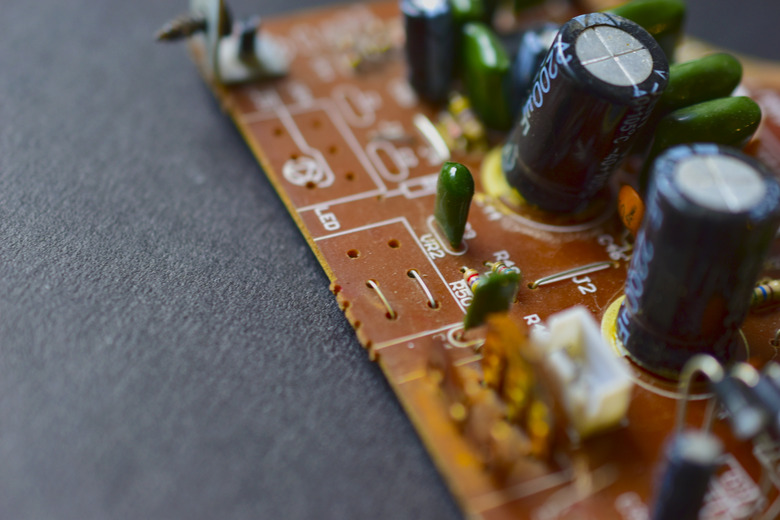How To Recycle Capacitors
We may receive a commission on purchases made from links.
Electronics are becoming more and more prevalent in everyday life, and that means more and more electronic components are cycled through regularly. Along with more components comes more electronic waste. A capacitor, an invaluable part of most electronic products, can be recycled, but doing so isn't as easy as putting it out for recycling pickup.
Recycling Capacitor Units
Recycling Capacitor Units
A capacitor is a unit that receives electricity and then funnels it out to the device that needs power. A capacitor stores an electrical charge and then regulates the voltage that's released, ensuring that too much voltage isn't discharged. It can also remove noise associated with high frequency.
Capacitors generally contain a lot of metal. This is where recycling your capacitor comes in. Depending on the type of metal in your capacitor, you can find a way to recycle the item. The best way to recycle your capacitor is to take it to an electronics recycling facility and see if they'll accept it.
Many capacitors contain oil, and for best practices, the oil should be removed in order to safely recycle the metal contained in the capacitor. The problem with oil-filled capacitors is that some older ones contain polychlorinated biphenyls (PCBs), and if there's any oil residue on the metal, it can contaminate the recycled metal.
Steps to Recycle Capacitors
Steps to Recycle Capacitors
Because capacitors are meant to store power, you'll have to follow safety steps when removing one from the electronic device that contained it. Make sure the electronic item has been unplugged for a minimum of 48 hours to avoid being shocked. This should be enough time for any unused power to dissipate. You should also wear goggles and acid-resistant gloves if you're recycling a capacitor from an air conditioner because it may contain freon.
You should be able to find a metal recycler in your area that accepts capacitors. Not all metal recyclers will take capacitors, but those that do are generally set up to check for oil contamination. There are also many household items that use capacitors that don't contain oil. These include clothes dryers, fans, refrigerators, stoves, TVs, washing machines and other electronic equipment.
The best way to find a metal recycler in your area is to do an online search for metal recycling. The Town of Mansfield, Connecticut, for example, has a transfer station that accepts capacitors for $3 per item.
More About Recycling Capacitors
More About Recycling Capacitors
Recycling capacitors is an environmentally friendly way of disposing of old machinery. According to a March 2017 study published in the Journal of Hazardous Materials, 96 percent of aluminum and 98 percent of iron can be recovered from capacitors under optimal conditions.
Eaton, a power management company in South Carolina, recycles capacitors from its customers. This is done by sorting, shredding, melting and purifying aluminum, steel, stainless steel and internal wires from the capacitors the company collects. The oil is collected and refined to become an ingredient in future oil-based products. If your capacitor contains porcelain, it's recovered for a variety of uses, including civil engineering products.
Some electronic recyclers offer cash for the metal recovered based on the weight of the metal. But even if you pay a fee to drop off your capacitor, you'll know that you are keeping recyclable material out of the landfill and putting it to use in a new product.
References
- Matsusada Precision: What Is the Role of a Capacitor in Electronics? Focusing on the Mechanism
- Trustway Metal: Can You Scrap Capacitors?
- Eaton: Power Capacitor Unit Recycling Program: Open to Any Unit, Age, Manufacturer, Condition
- Connecticut Department of Energy and Environmental Protection: Removal, Storage, and Disposal of PCB Small Capacitors
- Town of Mansfield, Connecticut: Trash & Recycling Information
- Journal of Hazardous Materials: Environmental Friendly Technology for Aluminum Electrolytic Capacitors Recycling From Waste Printed Circuit Boards
